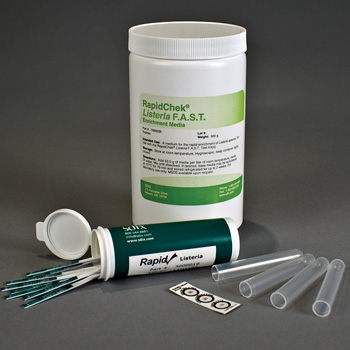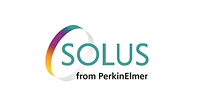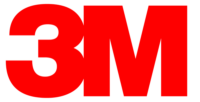In the past 30 years, Listeria monocytogenes has caused more headaches and challenges for ready-to-eat (RTE) meat producers than any other food safety issue. Listeria can be found anywhere in the environment and has been isolated from different types of foods, most importantly from RTE products. In such products, cross-contamination can occur after pasteurization or cooking, potentially leading to illness if not detected. The routine testing of both environmental surfaces and finished products for Listeria has become very important in the industry to prevent illness and to avoid costly recalls.
Test and Hold Becomes Mandatory
Recently, the U.S. Department of Agriculture (USDA) Food Safety and Inspection Service (FSIS) proposed a rule that requires meat processors to hold product undergoing pathogen testing until negative test results are achieved. Most meat processors were voluntarily following this practice prior to the rule, but it was not standardized across the industry. According to USDA, dozens of recalls within the last 3 years could have been prevented if the industry routinely followed this practice. From 2007 to 2009, 44 meat and poultry recalls were prompted by FSIS tests that revealed the presence of E. coli O157:H7 and Listeria monocytogenes, resulting in two infections, one fatal. A mandatory test-and-hold rule could have prevented these illnesses and saved $46 million per year.
The Problem: New Rule Requires a Faster, More Reliable Listeria Method for the Industry
RTE meat processors have responded to this new rule by implementing changes in their test-and-hold programs. Many processors are being required to switch from 40- to 48-hour Listeria methods to faster, 24-hour methods. While processors need a faster result to ensure that test and hold does not interrupt business work flow, they must also ensure that the faster test method is effective in the detection of the organism. This poses a challenge because Listeria is a slow-growing pathogen. Although it has been documented to survive for long periods even under adverse conditions, it is a poor competitor against other microorganisms and takes much longer to reach detectable levels. The industry is now faced with adopting a faster rapid method for detection of an organism that does not like to grow.
The Solution: SDIX’S RapidChek® Listeria F.A.S.T.™
SDIX has developed a highly accurate, true 24-hour test to meet the industry’s current need: the RapidChek Listeria F.A.S.T. (Fast. Accurate. Sensitive. Technology.) test system. Processors can now take their programs from “test and hold” to “test and sold” by reducing time-to-result while still maintaining highly accurate results.
Fast
The RapidChek system delivers results in 24 hours. Most other rapid methods require a 24-hour or longer enrichment followed by further sample processing and assay time that leads to a time-to-result of 26–32 hours. With this system, results are achieved within 15 minutes of enrichment.
Accurate
Studies have shown that the RapidChek system has 100 percent specificity and sensitivity against inclusivity and exclusivity panels tested. These panels included organisms spanning all six species of Listeria and several non-Listeria, Gram-positive organisms. The system has also proven equivalent to the regulatory, 48-hour cultural method for the detection of Listeria on various environmental surfaces.
Sensitive
This system detects all six species of Listeria for a complete solution for environmental monitoring programs. Missing a single species of Listeria in your environmental monitoring plan is denying yourself the knowledge of potential growth niches and possible contamination areas.
Technology
The RapidChek detection device is based on advanced immunoassay technology that is used in several health-related diagnostics worldwide. SDIX produces antibodies exclusive to the RapidChek test systems. The unique, proprietary media coupled with the advanced immuno-detection device allows for the best resuscitation of stressed or injured cells and better selectivity against nontarget organisms, leading to faster and more accurate results.
Benefits of RapidChek Listeria F.A.S.T.
• Faster product release
• Accurate, actionable results
• Reduced unnecessary confirmation and re-cleaning costs and time
• Cost-effective testing program with minimal upfront investment
• Less technician hands-on time = Fewer errors = Fewer false results
• No overtime for increased sample volumes
• Meets regulatory testing requirements
RapidChek. Simply accurate.
sdix.com
Rapid, 24-Hour Listeria Environmental Testing




